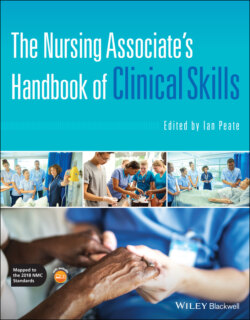Читать книгу The Nursing Associate's Handbook of Clinical Skills - Группа авторов - Страница 232
Managing Complaints
ОглавлениеMost of the time, the care that is provided to people in the NHS and by other care providers such as those in the independent and voluntary sectors is of a high standard with positive outcomes. However, things can and do go wrong from time to time and complaints are made.
The total number of all reported written complaints in 2017–2018 was 208,626. This is the equivalent to 4,012 written complaints a week or 572 complaints per day (NHS Digital 2018). The NHS has a single approach that deals with complaints allowing flexibility to respond and to learn from mistakes that may have been made.
The NHS Constitution (DHSC 2015) describes principles and values of the NHS in England and also provides information on how complaints can be made about NHS services. The Constitution has been updated and includes additions and developments associated with:
Patient engagement
Feedback
Duty of candour
End‐of‐life care
Integrated care provision
Complaints
Patient information
Staff rights, responsibilities and commitments
Dignity, respect and compassion
When a person is unhappy with the services they receive, it is important for the nursing associate to inform them (and, if appropriate, their family) of their rights. People have the right to make a complaint about any aspect of NHS care, treatment or service. The Local Authority Social Services and NHS Complaints (England) Regulations 2009 is the legislation that governs NHS complaints. These regulations make provision for complaints made on or after 1 April 2009; they introduced a revised procedure for the handling of complaints by local authorities, in respect of complaints about adult social care and by NHS bodies, primary care providers and independent providers in respect of provision of NHS care. The regulations united adult social care and health complaints processes into a single set of arrangements.
Each organisation will have arrangements for people to raise concerns or make complaints. Referral to the Patient Advisory Liaison Service (PALS) can help people navigate the complaints process. The creation of PALS was as a result of the NHS Plan (Department of Health 2000). PALS are intended to enable patients and the public to access information and raise concerns with their Trust; they offer confidential advice, support and information on health‐related matters. They provide a point of contact for patients, their families and their carers. PALS provides help in many ways, it can:
help with health‐related questions
help resolve concerns or problems when using the NHS
advise people how to get more involved in their own healthcare.
PALS are not a part of the complaint’s procedure; they can provide information about:
the NHS
the NHS’s complaints procedure, including how to get independent help if the person wishes to make a complaint
support groups outside the NHS.
